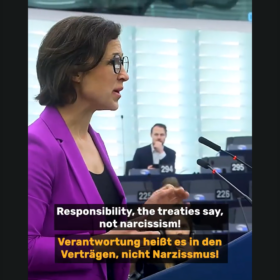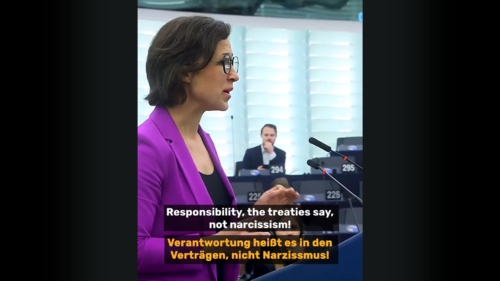The war in Ukraine has exposed the sorry state of Europe’s defense capabilities. In principle, the member states have agreed to cooperate in closing so-called capability gaps (which occur when the existing technical equipment no longer meets the requirements). However, implementation is proving more difficult than expected, as procurement has so far been a national issue and hardly any member state is willing to put this task in the hands of the EU. But member states and the European Commission are taking the first steps – and the European Parliament is on board.
The latest decision by EU defense ministers was to supply Ukraine with a large amount of ammunition within twelve months, including one million artillery shells – only the ammunition has to be procured first. Recently, this was discussed at an EU summit (see also my comments in „Armed Forces and Strategies“, starting at 21:56 – Link in German –, and in „Politico“). Josep Borrell, the EU’s Foreign Policy Chief, proposes that the EU provide two billion euros from the European Peace Facility (a military fund that is not part of the EU budget). Member states would then use this money to i.a. buy new ammunition, refilling their stocks after having provided ammunition to Ukraine. Although each country will continue to order ammunition for itself, the respective national framework contracts will be opened up for interested partner states to participate. In this way, member states can jointly benefit from the advantages arising from the coordinated procurement of defense equipment.
“EDIRPA” – What is it all about?
EDIRPA (“European defence industry reinforcement through common procurement act”) is another initiative launched by the Commission last year – it is now with Parliament and the trilogue negotiations are to be concluded by summer. As a consequence of Russia’s war of aggression, many member states are currently increasing their defence budgets. Against this background, EDIRPA aims to improve defence capabilities by promoting coordinated arms purchases by member states. The idea is that member states should not compete with each other on the market as they have done up to now, but coordinate procurement and, in the best-case scenario, be able to negotiate better conditions based on higher quantities purchased. The additional costs incurred in the coordination of a joint procurement of defence equipment are to be paid from EDIRPA funds. We discussed this initiative in a meeting of the Defence Committee and the Committee on Industry, Research and Energy. The following points are important to us as Greens/EFA:
- In principle, we are strongly in favour of joint procurement of defence equipment: After all, all member states together have greater market power than a single member state. In this way, unnecessary costs can be reduced, which helps to use taxpayers’ money as efficiently as possible. In addition, the joint purchase of defence equipment can improve interoperability within the EU.
- The 500 million euros budgeted for EDIRPA so far will not be decisive when determining whether to procure jointly. What is much more important is the political will to make things happen! Positive examples include the above-mentioned decision on ammunition deliveries to Ukraine and the use of the European Peace Facility to finance military assistance to Ukraine by member states. We therefore believe that there is no need at this point for this (symbolic) subsidy from an already strained EU budget.
- EDIRPA must not directly finance the purchase of defence equipment, as this would violate the European Treaties. This must clearly be stated in the legal text.
- Increased European cooperation in the defence sector must go hand in hand with stronger supervision and control by the European Parliament. After all, 500 million euros out of the EU budget have been earmarked for EDIRPA, and the European Parliament must approve the EU budget. In the past, Parliament has waived its rights of scrutiny in similar cases – this should not be repeated!
Unfortunately, the past has shown that the member states are often only on paper willing to cooperate more at the European level in the field of defence. For example, the member states should have been providing the European Defence Agency with information on their defence capabilities in various areas for several years now – but that basically did not happen: The attack on Ukraine has drawn the focus to these negligences.
As long as no mind shift takes place, EU initiatives in this area will continue to struggle to gain acceptance. It is therefore up to the member states to make clear announcements – and then implement them. If Russia’s war is not enough to kick things off, what is?












